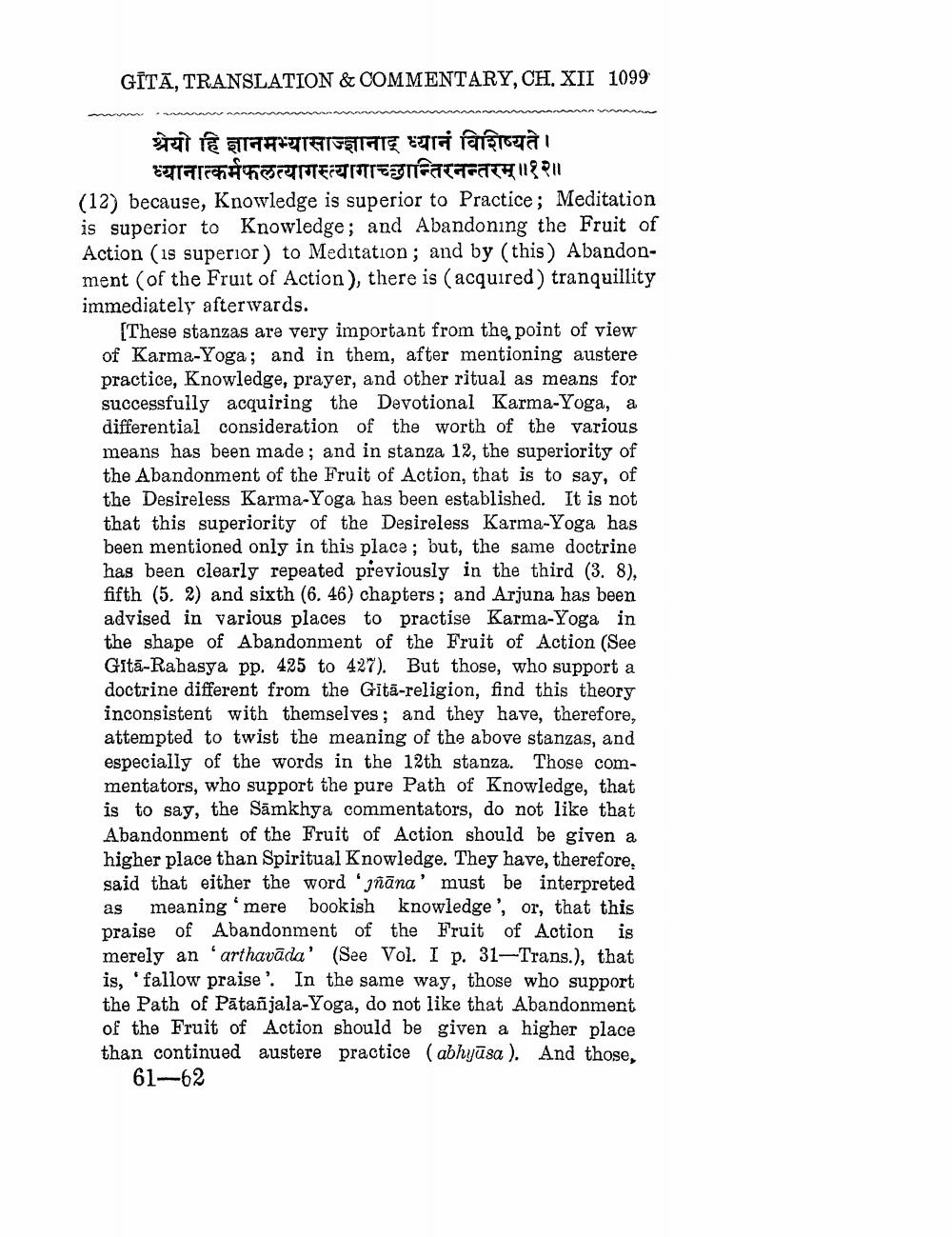________________
GĪTĀ, TRANSLATION & COMMENTARY, CH, XII 1099
श्रेयो हि ज्ञानमभ्यासाज्ज्ञानाद् ध्यानं विशिष्यते।
ध्यानाकर्मफलत्यागस्त्यागाच्छान्तिरनन्तरम् ॥१२॥ (12) because, Knowledge is superior to Practice; Meditation is superior to Knowledge; and Abandoning the Fruit of Action (is superior to Meditation, and by (this) Abandonment of the Fruit of Action), there is (acquired) tranquillity immediately afterwards.
[These stanzas are very important from the point of view of Karma-Yoga; and in them, after mentioning austere practice, Knowledge, prayer, and other ritual as means for successfully acquiring the Devotional Karma-Yoga, a differential consideration of the worth of the various means has been made; and in stanza 12, the superiority of the Abandonment of the Fruit of Action, that is to say, of the Desireless Karma-Yoga has been established. It is not that this superiority of the Desireless Karma-Yoga has been mentioned only in this place; but, the same doctrine has been clearly repeated previously in the third (3. 8), fifth (5. 2) and sixth (6. 46) chapters; and Arjuna has been advised in various places to practise Karma-Yoga in the shape of Abandonment of the Fruit of Action (See Gitā-Rahasya pp. 425 to 427). But those, who support a doctrine different from the Gitā-religion, find this theory inconsistent with themselves; and they have, therefore, attempted to twist the meaning of the above stanzas, and especially of the words in the 12th stanza. Those commentators, who support the pure Path of Knowledge, that is to say, the Sāmkhya commentators, do not like that Abandonment of the Fruit of Action should be given a higher place than Spiritual Knowledge. They have, therefore. said that either the word 'jñāna' must be interpreted as meaning 'mere bookish knowledge', or, that this praise of Abandonment of the Fruit of Action is merely an 'arthavada' (See Vol. I p. 31-Trans.), that is, 'fallow praise'. In the same way, those who support the Path of Pātañjala-Yoga, do not like that Abandonment of the Fruit of Action should be given a higher place than continued austere practice (abhyāsa). And those,
61-62




